Pond Fishing
Pond fishing is an entertaining outdoor activity that can be enjoyed by anglers of all experience levels. The whole family can take advantage of these pond fishing tips to increase their chances of catching fish species like bluegill, crappie, sunfish, catfish or largemouth bass.
Pond Fishing Tips and Rules
Most ponds have been created to hold water for local agricultural or recreational purposes, but keep in mind that some of the best fishing ponds in your area may be located on private land. Thus, one of the most important pond fishing tips to remember is to always get permission from the property owner if you want to go fishing in a private pond.
Be sure to follow all state fishing regulations and bag limits when fishing in these freshwater fishing environments. Ponds are generally small bodies of water. As a result, their fish populations can be affected by even minor changes that take place within these delicate ecosystems. If you get permission to fish in a private pond, don't forget to ask the property owner if you can keep any fish that are within the state regulations.
How To Fish in a Pond
Since you are ready to learn how to fish in a pond, the next step is to learn about the different types of Pond structures and make sure you have the right tackle, gear and bait. You won't need a lot of pond fishing gear to get started. In fact, that’s one of the best things about fishing in a pond -- it's simple. From there, it's just a matter of finding the best places to fish.
- You can use a medium-action spinning rod and reel that is spooled with six to 10-pound test monofilament fishing line when pond fishing. This type of rod and reel will be work for bass, crappie, bluegill, sunfish, and most catfish.
- When pond fishing with beginners or kids, it's best to bring along live baits. Night crawlers, minnows, crickets, and waxworms will attract several fish species in a pond. These live baits can be rigged on hooks in sizes from 8 to 4 depending on the size of the fish species you are targeting.
- If you want more of a challenge, try pond fishing with artificial baits or lures. Topwater poppers or floating frogs are two of the best pond fishing lures on the market. These artificial baits tend to be quite effective when fishing in ponds during the early morning or evening hours.
- As you approach the shoreline of a pond, keep in mind that pond-dwelling fish will be much more aware of your movements (as opposed to those fish that live in deeper bodies of water), particularly on sunny and calm days. Walk slowly and quietly along the shoreline while staying several feet back from the water.
- Once you have your tackle and gear ready, you'll want to think about where to fish. Consider casting your fishing line close to structure such as docks, trees or submerged logs. These types of areas provide food, shelter, and shade for fish. You may also want try any areas where there is more water movement, such as near a fountain or stream.
The next time you want to do something fun together as a family, go pond fishing. These small bodies of water can often lead to big catches. Don't overlook local ponds when looking for new places to fish! Learn more about lake and pond structures in our next section.
KEEP LEARNING
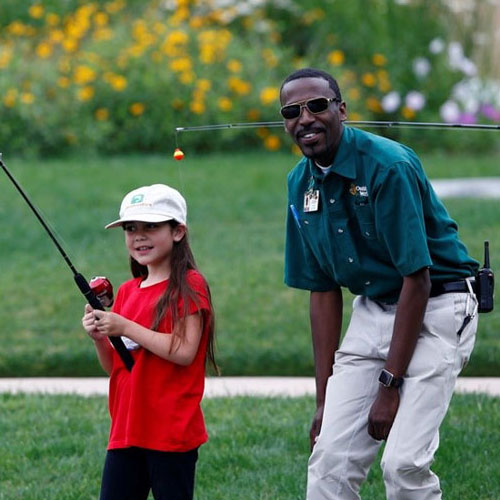
First Catch Center Trailer Gallery
FCC Trailer Photo Gallery
LEARN MORE
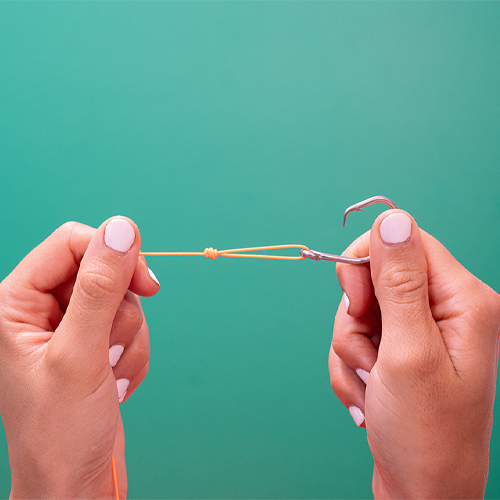
How to Tie a Duncan Knot
Learn to tie a Duncan knot by following these five simple steps. Watch our new video.
LEARN MORE
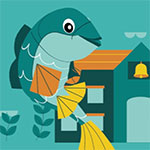
Welcome to Angler Academy!
No one said you can’t bring fishing inside! There’s lots of fun activities we can do right from home
LEARN MORE

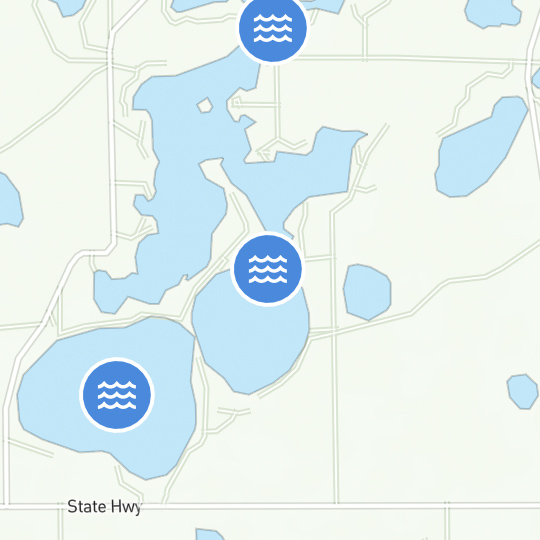
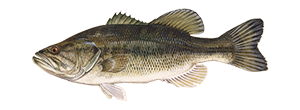.png?lang=en-US&ext=.png)